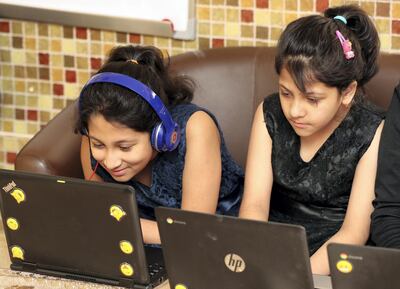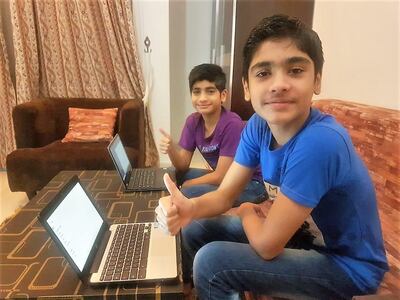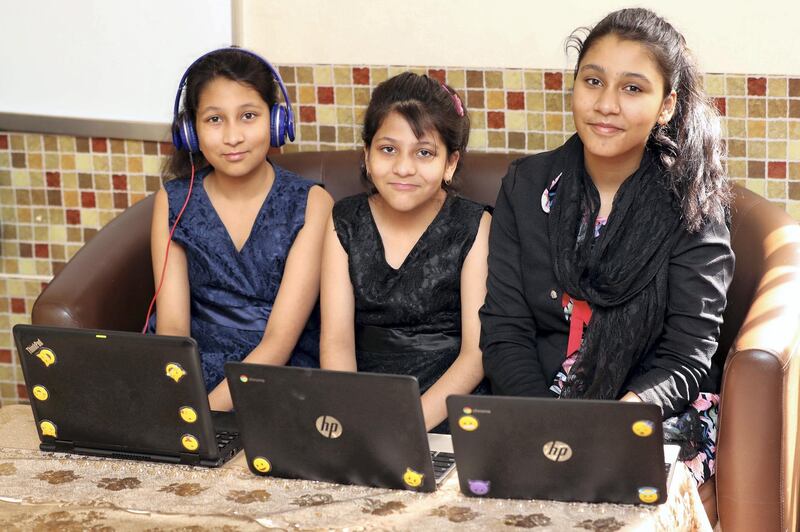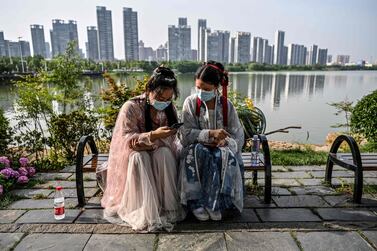A non-profit organisation in Dubai has taken on the task of helping children from lower income backgrounds by giving them free laptops.
The aim of the initiative is to help pupils be a part of online education in place due to school closures amid the coronavirus outbreak.
The Pakistan Association Dubai launched the ‘Tech Drive’ campaign on May 9 after 100 needy families requested for electronic devices as their children were cut off from schools.
The campaign has helped 75 families in the emirate by donating free laptops to help pupils stay connected with their teachers and peers as they continue with the online programme.
Laptops or iPads have become essential education tools since remote learning was introduced nationwide in March.

Many families in the country did not have access to computers, which is crucial to facilitating online education.
The Rehman family in Dubai, for example, shared one laptop among three children as they struggled to attend all of their virtual classes.
“All of my three daughters were really behind their studies because they were using this very old laptop that we have and my mobile phone to check their emails and talk to their teachers. We had to choose who would get to attend their online class,” said Kiran Rehman, who is a Pakistani homemaker.
Her husband earns Dh7,000 as an accountant in a construction firm. She said they were already struggling with house rent and other payments and could not afford to spend more.
Her daughters, aged eight to 14, attend the Pakistan Education Academy and had to skip several online lessons.
"We have received two laptops and that has really helped us," Ms Rehman told The National.

“My daughters have their own devices now and they can attend all of their online classes. It’s a huge relief.”
The Sarmad family in Dubai is another beneficiary of the campaign and have received laptops for her two children.
Salaar bin Sarmad, 13 and Saif bin Sarmad, 11, had to use their mother’s mobile phone to communicate with their teachers.
“We didn’t have a laptop, desktop or an iPad,” said Arshia Sarmad, the Pakistani mother of the two boys.
“It was almost like their education had completely stopped because they didn’t really have proper online access to their teachers or studies.”
Ms Sarmad’s husband earns Dh5,000 monthly as an instructor at a driving school but is on unpaid leave now.
Buying a new electronic device was “impossible” for them as they struggled with outstanding payments on house rent for their one-bedroom apartment in International City and school fees.
“We are grateful for receiving these laptops,” said Ms Sarmad.
Education authorities, banks and other non-profit groups have also run similar campaigns in the past months to ensure pupils from low-income families have access to online learning tools.
With its limited stock of devices, Dar Al Ber Society, a charitable organisation, has assisted families in need.
The charity encourages residents to donate their electronic devices to help learners who may not have the money to buy gadgets.
Sandooq Al Watan, a national initiative, announced on May 5 will distribute 10,000 laptops to school and university students.
First Abu Dhabi Bank partnered with the UAE Ministry of Education and will provide laptops worth Dh5 million to pupils nationwide.
Emirates NBD and Emirates Islamic also pledged Dh4 million to support the ministry’s distance learning programme.








